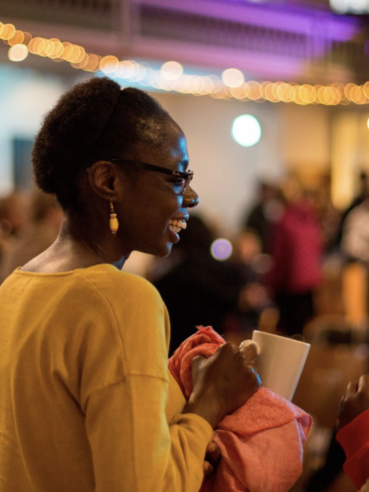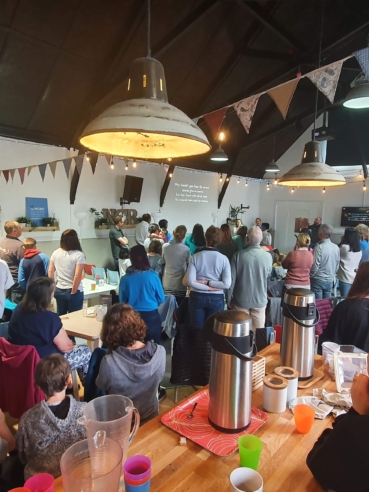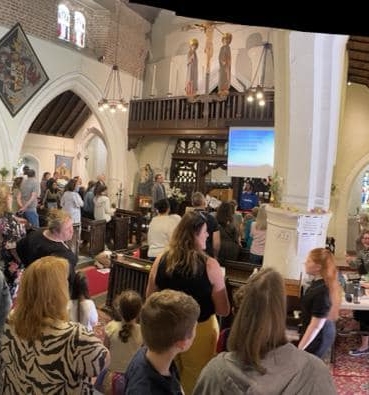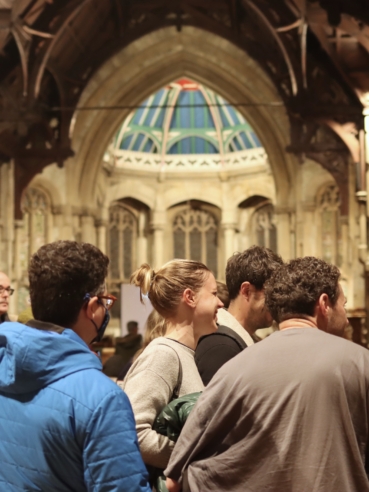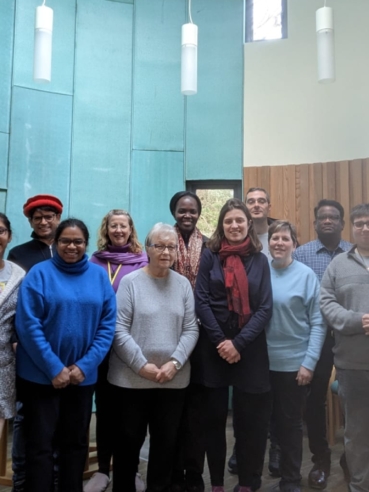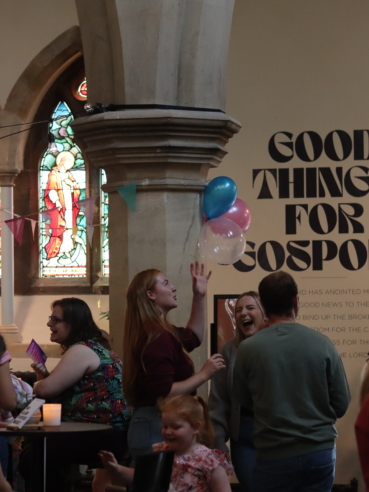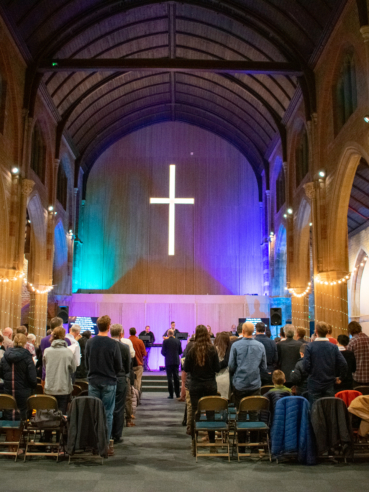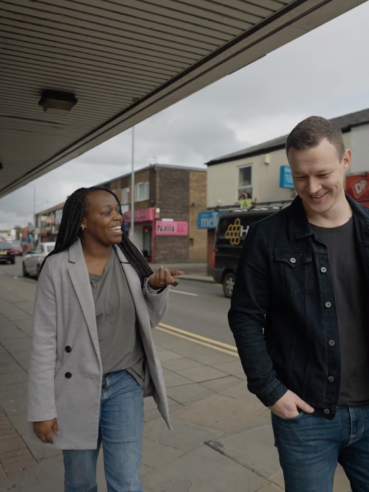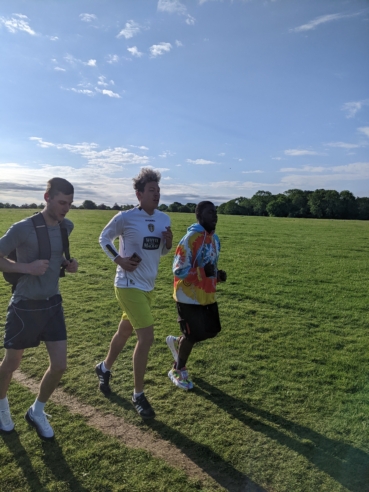The City of London traditionally reflects a world of finance and commerce, a place where City workers – a community with influence, power and privilege – work long hours in the capital’s power houses and offices.
But there is another, very different community of City workers; cleaners, security and maintenance workers and others who go in and out of the City, often when other workers have left or before they arrive. A largely unseen community whose voice can go unheard.
It’s these workers that a church in the heart of the commercial and financial district is seeking to reach.
Revd Josh Harris is priest-in-charge of St Katharine Cree, which stands amidst the office blocks and City landmark buildings. Josh and his team are determined that this group of unseen and unrecognised City workers are at the very heart of their ministry.
‘We welcome everyone but it’s about who you start with,’ says Josh. ‘Whose community it is and who is doing the welcoming.’
The ministry is the latest in a line of efforts to reach out effectively to hidden and migrant workers in central London, as Josh explains:
‘During my curacy in Shadwell, just before the pandemic, we picked up the baton walking and praying along the border between Tower Hamlets and the City of London. We then organised a day of prayer and discernment, inviting local church members to meet and chat with workers arriving for work early in the morning at Aldgate bus station. This inspired a new focus on mission in the area.
‘We noticed that there was a job centre, and hotels alongside wellbeing and health institutions. People asked for prayer and healing. We realised God was calling us specifically to workers, to a ministry with its own integrity organised around them.’
With support from the Centre for Theology and Community, Josh put together a diverse team to continue the process of careful listening and exploring what God was calling them to. One early team member was a cleaner from Latin America; another was born and raised in the East End, with a strong testimony of faith having experienced low paid work.
Listening revealed that health and wellbeing were high on people’s priorities and also problems of dislocation, alongside challenges around housing and mistreatment at work.
Recognition was important and deep anger was heard from people who felt hidden away and forgotten, unnoticed and unappreciated.
The clearest message was a need for English classes. Evening Zoom classes weren’t accessible for everyone because of a lack of data allowance, juggling several jobs and caring for their families. But people were happy to come to the City on Saturdays, so Josh’s team began to explore where English classes could be based and The Bishop of London invited him to consider St Katharine Cree.
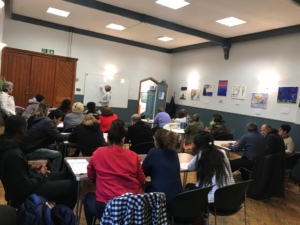
‘We said yes!’ says Josh. ‘The church has a hall for teaching and good transport links – and we couldn’t afford to rent a space in the City! We also realised the huge opportunities for ministry that a church here would bring.
‘Many of the people that we reach out to appreciate being welcomed into a recognisably Christian space. Whatever other activities and ministry we want to do, we want a regular rhythm of prayer and worship at the heart.
‘There is something significant about creating space for this hidden worker community to be here in the heart of the City. I could see how we might use the space itself and our civic and public role as a City church to give hidden workers the visibility and recognition they deserve. That remains an important part of what we’re doing – and why we started The London Cleaners’ Carol Service, for example, and our worship celebration led by the Bishop of London during Living Wage Week.’
Prayer has been a vital foundation. ‘Everyone wanted Saturday English classes,’ says Josh, ‘but we couldn’t find anyone to teach them! We prayed together as a team saying, “You have to make a way, Lord, please!”’
The answer came in Alison Sen, a licensed lay minister at nearby St Olave’s Church. A very experienced English teacher with expertise in teaching migrants, Alison has taught the classes since, supported by a team of church staff and volunteers.
Josh admits that success didn’t come instantly:
‘On one occasion, just one person came, which was demoralising. But we talked about the parable of the sower and preparing the soil – and we held on! Now on Saturdays we have busy beginner classes and a conversation group.
‘The classes weren’t set up to be a funnel into Christian worship – they are open to all and we want to enable people to build community, build friendships, and to take part in society. But we wanted to remain attentive to where the Holy Spirit might be moving, and we heard that some people coming to the classes wanted the chance to pray together in their own language.’
After a successful Lent Bible Study in Spanish led by some of the team, a monthly Spanish Eucharist started last year. The service has gone from strength to strength, with a growing group who joined the church through the English classes taking on roles leading worship, sharing their testimonies, and preaching.
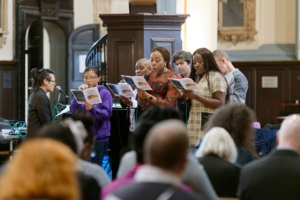
Josh is aware that it is not unique: ‘There are churches in South and East London, for example, who have Spanish speaking priests offering bi-lingual services. We have no Sunday services and we’re keen to connect people to parishes as they grow in faith. But we want to meet these people where they are – here in the City of London.
‘I rely heavily on bi-lingual colleagues and it felt awkward at first to learn to preside in Spanish when I don’t speak it. We hope one day to have a Spanish-speaking priest from this community – but for now I’m responsible for offering the hospitality of the church, especially in the Eucharist, to this community who are often pushed aside and hidden.’
Partnerships with different groups has helped widen the reach to different workers across London. This included a celebration of the feast of St Joseph the Worker, which brought in large numbers for a Eucharist and a BBQ with the Spanish-speaking cleaners’ trade union the church has partnered with. Later this year, the church will again share a celebration of Mother Theresa Day with the Albanian community in London organised with a Newham-based community group. At Christmas, the church has established the annual London Cleaners’ Carol Service with Clean for Good.
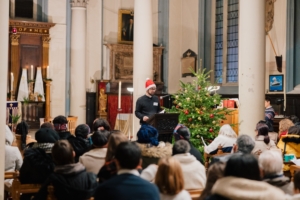 ‘Partnership is at the heart of what we do,’ says Josh. ‘We are in the centre of the City, weaving together threads of amazing work and ministry that others are doing, amplifying and encouraging what we can, learning all the time, and helping others connect their work for justice with the Christian faith and be resourced in that by God.
‘Partnership is at the heart of what we do,’ says Josh. ‘We are in the centre of the City, weaving together threads of amazing work and ministry that others are doing, amplifying and encouraging what we can, learning all the time, and helping others connect their work for justice with the Christian faith and be resourced in that by God.
‘Not that long ago I believed we could find a good day and time to reach out to the unseen workers we feel called to. However shifts are not stable, things change all the time. Some things have worked really well – other things have fizzled out.
‘What we are doing sits somewhere in between planting a church, running a chaplaincy, and organising a community hub. It is stretching and often chaotic, but we are settling into a rhythm which bases everything we do around seeing the worker in front of us.
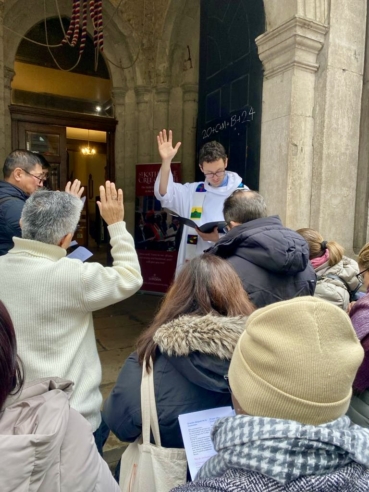
‘I learned from my friend, Fr Angus Ritchie, who helped restart the mission of this church with me and I often have his voice ringing in my ears: people before programme! We start with the real people who are here and go from there. We’re not just reaching out to workers: they are whole people and sometimes it feels as if the City doesn’t recognise that.
‘Everything about the City can fragment your life and it can feel as if it extracts the part of you which is economically productive. That’s true for an insurance underwriter or a ship broker and it’s true for a cleaner or a security worker. Even the very best employers are still most interested in you as a worker. We want to show that God loves the whole person.’
Sharing stories has become a central part of the culture at St Katharine Cree, and a way in which people connect their own stories to what God is doing in their lives and the world around them.
‘I’ve learned so much from this community of workers,’ says Josh, ‘about tenacity and strength, about faith and courage and about maintaining faith in yourself and in Jesus Christ when you’ve had to migrate across the world and face numerous challenges and struggles in life is deeply humbling and inspiring.
‘There is such good news to be heard from this community for everyone. I hope we can help others in the church and the City to hear it!’
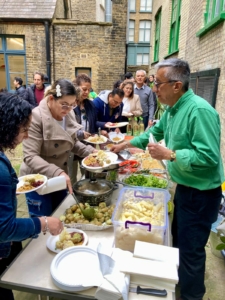

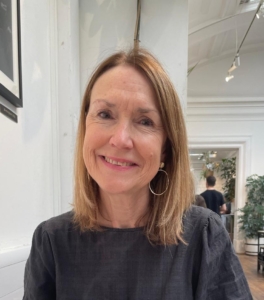
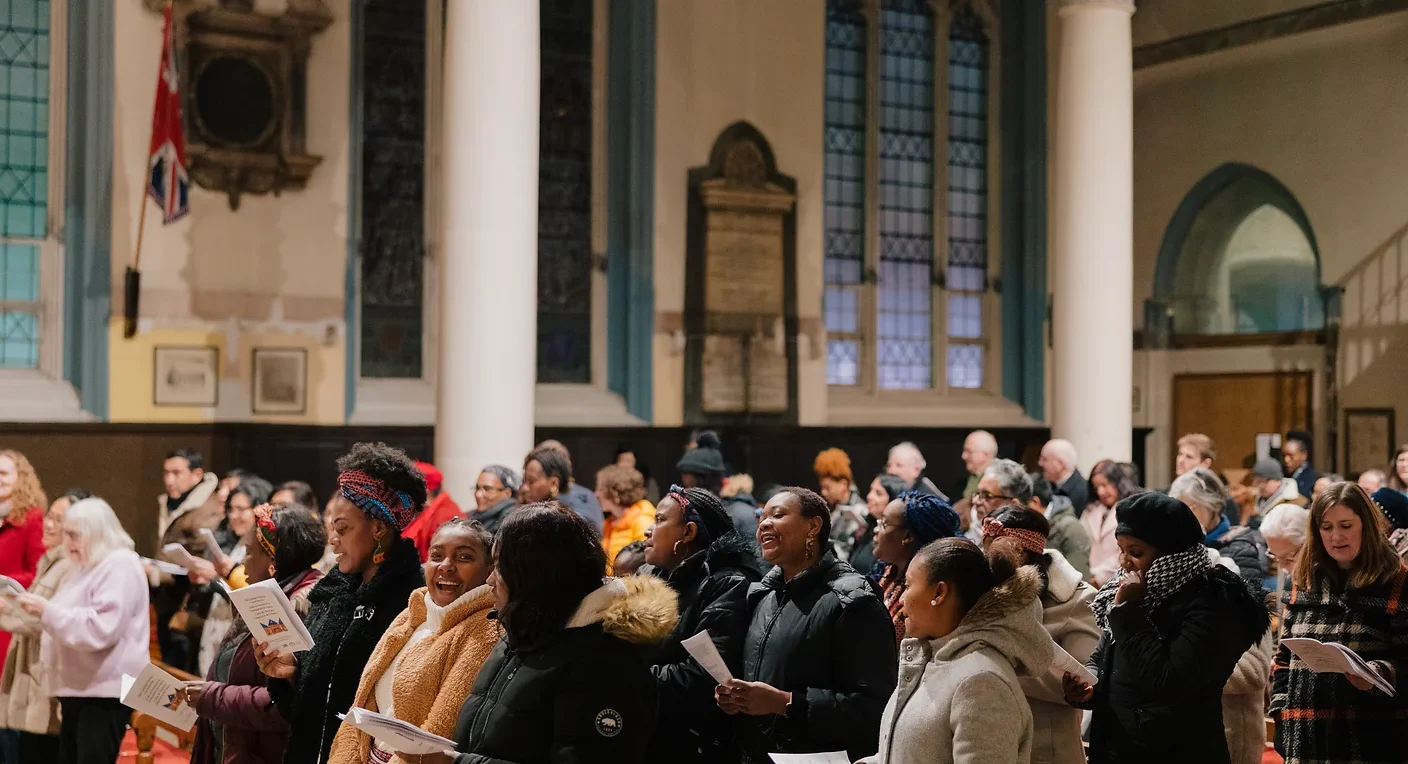


 ‘Partnership is at the heart of what we do,’ says Josh. ‘We are in the centre of the City, weaving together threads of amazing work and ministry that others are doing, amplifying and encouraging what we can, learning all the time, and helping others connect their work for justice with the Christian faith and be resourced in that by God.
‘Partnership is at the heart of what we do,’ says Josh. ‘We are in the centre of the City, weaving together threads of amazing work and ministry that others are doing, amplifying and encouraging what we can, learning all the time, and helping others connect their work for justice with the Christian faith and be resourced in that by God.

